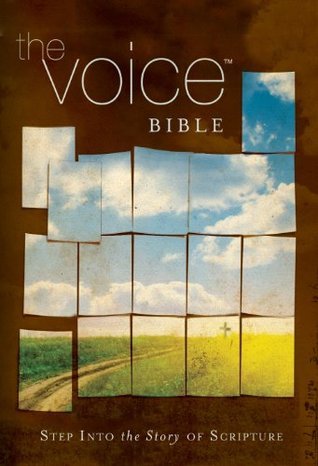What do you think?
Rate this book


The Voice™ is a faithful dynamic equivalent translation that reads like a story with all the truth and wisdom of God's Word. Through compelling narratives, poetry, and teaching, The Voice invites readers to enter into the whole story of God, enabling them to hear God speaking and to experience His presence in their lives. Through a collaboration of nearly 120 biblical scholars, pastors, writers, musicians, poets, and artists, The Voice recaptures the passion, grit, humor, and beauty that is often lost in the translation process. The result is a retelling of the story of the Bible in a form as fluid as modern literary works yet painstakingly true to the original manuscripts.
Features include:
Part of the Signature Series line of Thomas Nelson Bibles
The Voice Bibles sold to date: More than 308,000
Thomas Nelson Bibles is giving back through the God’s Word in Action program. Donating a portion of profits to World Vision, we are helping to eradicate poverty and preventable deaths among children. Learn more and discover what you can do at www.seegodswordinaction.com.
1665 pages, Kindle Edition
First published April 10, 2012